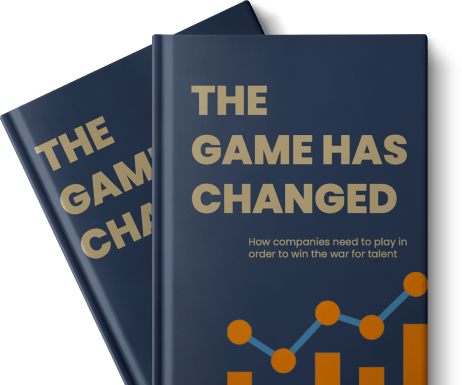How AI Improves Finance: Use Cases in Customer Service, Financial Forecasting & More
- AI/ML, Finance

It is almost obsolete to ask companies what they aspire to in the future. Of course, the answers will differ minimally depending on the industry they operate in, but at the core, it will boil down to two things: Perform more efficiently and grow profits.
Wouldn’t it be great to have a solution that serves you these goals on a silver platter?
Particularly in the world of Finance, Artificial Intelligence (AI) is increasingly being seen as this silver platter. But is it justified?
In this blog post, we explore some AI use cases in the Finance industry and how a deployment helps businesses achieve success. We also take a look at some of the challenges that still need to be overcome.
Going back about 10 years in time, for many, especially non-technical people, Artificial Intelligence was a buzzword that no one really understood. What exactly is AI? What is it doing? How does it work? What was new territory for most people at the time has now gained much more clarity and is already established in many people’s lives. What else should take someone’s car to a destination without having anyone drive? What else could control the robots that now vacuum floors automatically?
By AI we mean that computers are able to perform tasks that are normally done by humans because the tasks require human intelligence and judgment. In order to take advantage of this, companies have been investing more and more money in Artificial Intelligence for several years. According to IDC (International Data Corporation), the budget spent on AI solutions will increase by around 20% this year compared to last year. Although this trend can be observed across many industries, the financial sector particularly stands out.
Whether banking, trading, or insurance companies, Finance is an industry that has always been data-driven. In recent years, the amount and variety of available data have increased exponentially. This has opened up a huge opportunity for AI to help businesses make better decisions by extracting meaning from all this data.
The Benefits of AI
It also serves businesses to enhance their customer service by enabling a better user experience. For example, an AI chatbot provides a quick and easy way for customers to get answers to their questions 24/hours a day, 365 days a year without the need for human interaction.
Leveraging AI in such ways saves both time and manpower, reducing a company’s costs.
In addition, Artificial Intelligence can reinforce security and compliance, two critical areas for any financial institution. In other industries, for instance, this characteristic was exploited by IBM to protect the Wimbledon website from hacker attacks with a cyber security foundation for the world’s most famous tennis tournament.
These benefits are just a few of the reasons why AI is being increasingly adopted across all industries around the world. With this emerging technology, financial institutions are particularly able to provide better service to their customers and stay ahead of the competition. In the following paragraphs, we take a closer look at the areas within the financial sector where it is already being used effectively.
Use Cases of AI in Finance
Financial Forecasting
Another AI use case is the development of new algorithms for financial forecasting. These algorithms analyze large datasets and identify relationships that may not be immediately obvious. As a result, they allow for more accurate predictions about future market movements. Use cases for this benefit are found in stock trading, for instance. A lot of high-frequency stock trading organizations deploy AI-based algorithms to create automated systems that can execute trades based on predetermined criteria.
These systems are able to react to market changes much faster than humans, which leads to more profitable trades. Besides this improved reaction to such developments, the algorithms may also be utilized to react proactively by predicting price movements seconds or even milliseconds ahead of time giving traders a significant advantage over their competitors.
Overall, the adoption of Artificial Intelligence in financial forecasting provides a number of benefits. Predictive analytics helps to identify trends that may not be immediately apparent, new algorithms lead to more accurate predictions, and automated trading systems allow for faster reaction times. As a result, AI is playing a key role to help the finance industry make better decisions and generate more profits.


Detect Fraudulent Activity
Artificial Intelligence is also deployed to detect fraudulent activities in global financial markets, such as insider trading or market manipulation by identifying these activities early, helping to prevent financial losses and restore confidence in the finance industry. This technique is used by a number of banks and financial institutions, including Goldman Sachs and JP Morgan.
While AI is a powerful tool for detecting fraud, it is important to remember that it is not perfect. There will always be a risk of false positives, where legitimate transactions are being flagged as suspicious. However, by utilizing Artificial Intelligence in conjunction with other methods, such as human verification, the risk of false positives can be minimized. In the end, AI is a valuable tool that is capable of detecting fraudulent activity and protecting the finance industry.
Improving Customer Service
Artificial Intelligence has proven to have a particularly significant impact on customer service within the finance industry. By harnessing the power of data and machine learning, it helps financial institutions to provide more personalized and efficient services. For example, AI-powered chatbots can now handle a wide range of customer queries, often faster and more effectively than human customer service agents. This frees up time for human agents to deal with more complex issues and provides a better experience for customers.

As this emerging technology continues to evolve, we can expect even more ways in which it will help to improve customer service in Finance, leading to increased satisfaction and loyalty.
While there are a number of benefits that come with using AI for customer service in Finance, there are also some risks that need to be considered: Imagine if a chatbot makes a mistake or misinterprets a customer’s request, this could result in financial implications. However, when managed correctly, the benefits of using Artificial Intelligence for customer service in Finance far outweigh the risks, and any challenges have often been easily overcome.
The Future of AI in Finance and Banking
Looking ahead, it is clear that they will continue to play an increasingly important role in the finance sector. In the next few years, we can expect to see wider adoption of these technologies across a range of finance-related activities, from investment management and loan origination to financial planning and insurance underwriting. As an example of the latter, a recent study by Ernst & Young found that AI could help insurance companies reduce the time taken to underwrite a policy from six weeks to just two days.
As these innovations become more sophisticated, they will also start to play a greater role in shaping strategic decisions, such as which new products or services to offer, which markets to enter or exit, and how best to allocate capital.
Artificial Intelligence will also bring about a number of changes to the workforce in the finance sector. As more tasks are automated, there will be a need for employees with different skill sets, such as data analysts and software engineers. In addition, there will be a greater emphasis on training and development, as employees will need to keep up-to-date with the latest AI technologies.
AI is disrupting the Finance landscape as we know it. The benefits of using this technology in Finance are broad and significant, with companies that don’t implement it, will be left behind very soon. In this blog, we profiled a few areas in which Artificial Intelligence is being used to improve results and efficiency: Financial forecasting, detecting fraudulent activity, and customer service. There are already many more exciting ways how it will be used in Finance ahead. We look forward to assisting you with how and where to get the most benefit through the use of AI solutions, and what competitive advantages it will bring to your institution or company.Does your company currently face challenges related to the integration of AI/ML? If so, how will your team pull it off?
Many Finance executives are struggling with the bandwidth and/or the right expertise to execute with confidence.
At ELASTECH, we have assembled a team of proven experts in the field of Artificial Intelligence and Machine Learning, and we provide you with reliable outcomes that accelerate results and enable you to gain real competitive advantage.
We invite you to a conversation with one of our experts. To schedule a call, click below.
Book your free appointment with an AI Expert
How companies need to play in order to win the war for telent
